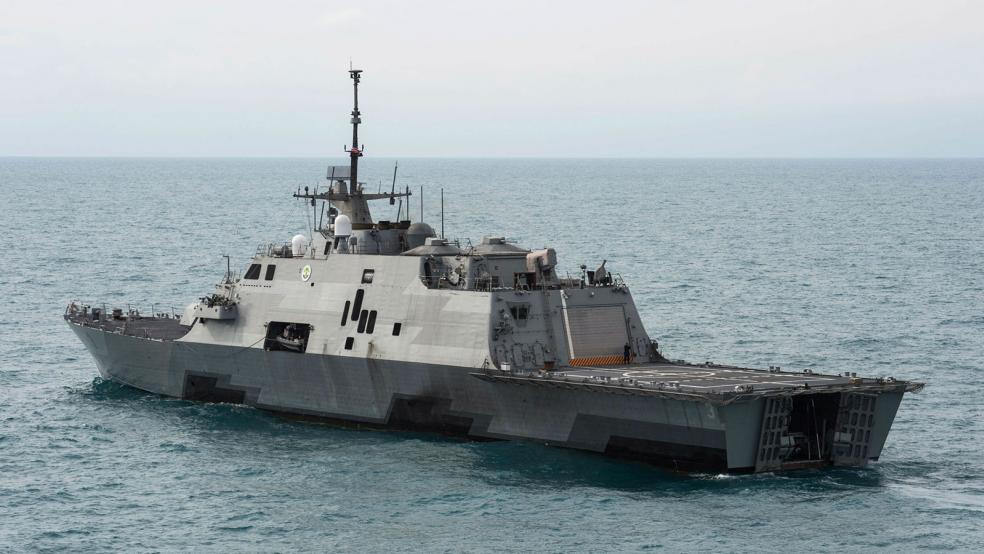The Navy’s new littoral combat ships have had a rough year. In October, the USS Montgomery collided with a tugboat in Florida, resulting in a crack in its hull. The ship, which had been commissioned just the month before, was in port due to an earlier mechanical failure.
In August, the USS Coronado was declared an “engineering causality” and had to return to Pearl Harbor from the Western Pacific. Days earlier, the USS Freedom experienced similar mechanical problems. And last December, the USS Milwaukee experienced a complete loss of propulsion and needed a tow to get home.
On Thursday, the Senate Armed Services Committee met to review the $29 billion program. Congress must decide whether to spend more money on the ships, which have had more than their fair share of problems — and high-powered critics.
Related: Watch Russian Warplanes Buzz a US Navy Destroyer
The littoral combat ship, designed to operate in shallow coastal waters, has been a disappointment in terms of both cost and capability. Critics say the ship may not be able to survive in real-world combat conditions. And the project’s cost has ballooned from $220 million to $478 million per ship, according to a new report from the Government Accountability Office.
Sen. John McCain has been sharply critical of the program, saying Thursday that the LCS has cost taxpayers billions and yet has “demonstrated next-to-no combat capability.” Nevertheless, 26 of the 28 vessels to be built in the program have been delivered or are on order, with the last two due for authorization this year.
President-elect Donald Trump and Congress will face a decision on whether to purchase 12 more ships, which will cost as much as $14 billion. The new ships would be a modified design of the LCS that the Navy is now referring to as a frigate. The new version will be better armed, though the final specs — and costs — have not yet been clearly defined.
Given the problems with the LCS program, some critics have hoped to see it come to an end. Trump’s election makes that less likely, given his call to expand the Navy to 350 ships from its current 272. In addition, Trump’s nominee for attorney general, Sen. Jeff Sessions of Alabama, has been a big supporter of the program. Some of the ships are made by Austal, an Australian defense contractor with major production facilities in Sessions’ home state.




